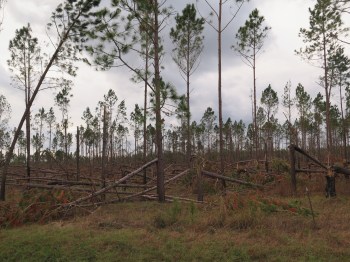Small farming boom in one community
TEXT OF STORY
SCOTT JAGOW: We’ve told plenty of stories about small farmers struggling to stay in business. Well, here’s a twist: A group of small farmers that is so successful, they’re looking for new land to plow. Sidsel Overgaard has the story.
SIDSEL OVERGAARD: It’s a Friday morning at the produce auction in Western New York State’s Yates County.
The farmers selling most of the boxes of vegetables rolling through the barn are Old Order Mennonites, similar to the Amish, but with a few more liberties when it comes to things like electricity and tractors.
Mennonites began moving here in the ’70s looking for cheap land and an escape from crowding in Lancaster County, Pennsylvania. Now, with more than 400 families in the settlement and the next generation coming of age, auctioneer Lowell Horst says community leaders are searching again.
LOWELL HORST: They’ve looked around in the east part of the state, they have looked farther west in the state and it’s just till somebody takes the plunge.
Horst says finding new territory is crucial to the Mennonite way of life.
HORST: The reasons these settlements are started up are to keep people on the land more. Not necessarily a closed society, but a protected society.
Farming can be a tough way to make a living, but, on the whole Mennonites do remarkably well, says Elizabethtown College professor Donald Kraybill. How?
DONALD KRAYBILL: The average married woman has about 8.3 children.
And, says Mennonite community spokesman Ivan Martin:
IVAN MARTIN: We feel it’s important to teach young children a work ethic.
Added up, that means free labor. Having lots of kids also means most Mennonites don’t pay federal income tax. And, by choice, most don’t pay, or take, social security.
MARTIN: We’re actually rather paranoid about government interference in our personal lives, in our religious community and we feel that it is safer for our culture as a whole to avoid those entanglements.
But Bill Henning, a small farms expert at nearby Cornell University, says it’s not just the big families and the tax exemptions.
BILL HENNING: They’re successful because they live a life and farm to meet needs. The fastest-growing cost on farms today is the cost of family living. Because people are after wants as well as needs.
Ivan Martin agrees that, as the owner of a horse and buggy, he’ll never be tempted to buy a $30,000 truck.
Any other tips for success?
MARTIN: Short of becoming Mennonite, that’s a hard question I think. Our community is bound by a common religion that we adhere to in a fairly monolithic sense. If you don’t conform, you will be an ex-Mennonite.
He says he despairs of trying to think how that could be mimicked in a secular system.
In Yates County, New York, I’m Sidsel Overgaard for Marketplace.
There’s a lot happening in the world. Through it all, Marketplace is here for you.
You rely on Marketplace to break down the world’s events and tell you how it affects you in a fact-based, approachable way. We rely on your financial support to keep making that possible.
Your donation today powers the independent journalism that you rely on. For just $5/month, you can help sustain Marketplace so we can keep reporting on the things that matter to you.


















